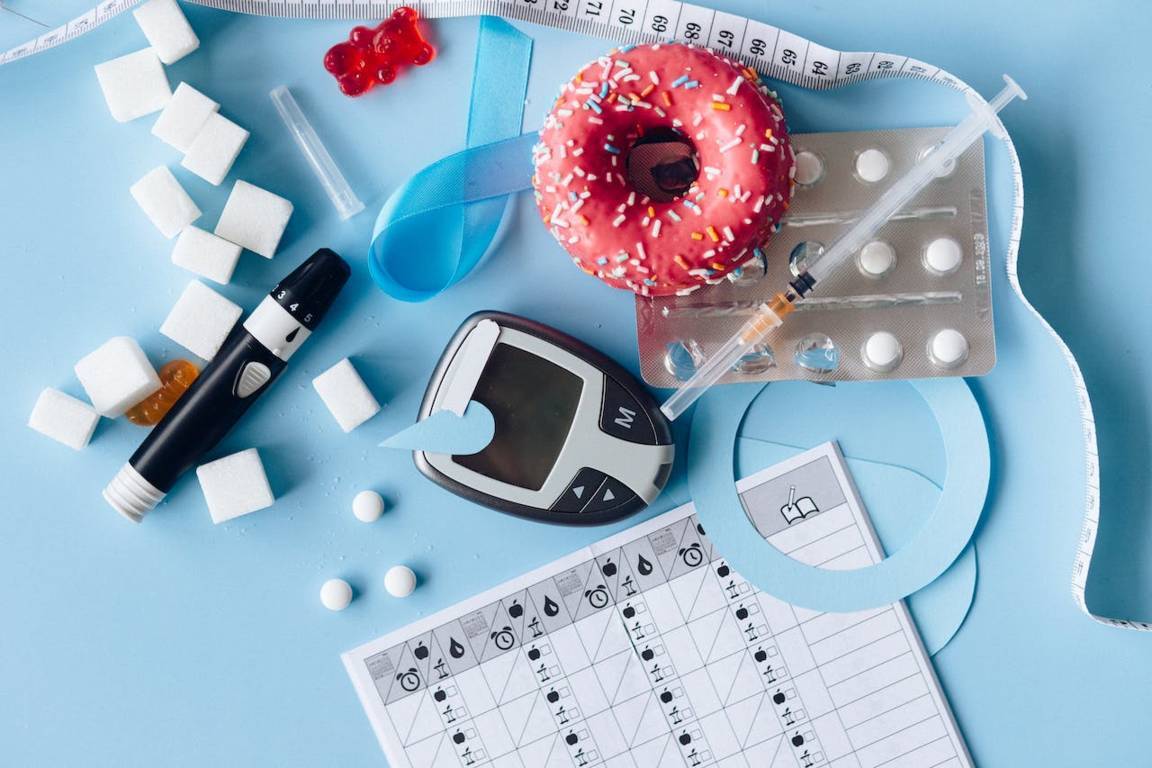Diabetes is a widespread chronic condition that affects millions of people worldwide. Managing diabetes requires adherence to medication, lifestyle modifications, and regular monitoring. Traditionally, injectable insulin has been a cornerstone of diabetes treatment. However, advancements in medical research have led to the development of oral medications known as diabetes pill medications.
Living with diabetes can be a challenging journey, requiring individuals to manage their blood sugar levels diligently. While lifestyle changes, such as a healthy diet and regular exercise, form the foundation of diabetes management, medications also play a crucial role in maintaining optimal blood glucose levels. One such category of medications gaining popularity is diabetes pill medications. In this blog post, we will explore the benefits and risks associated with these medications and why they hold promise for the future of diabetes treatment.
Understanding Diabetes Pill Medications
Diabetes pill medications, also known as oral medications, are drugs that can be taken orally to help manage blood sugar levels in individuals with diabetes. Unlike injectable medications such as insulin, these pills are convenient and non-invasive, making them a preferred option for many.
There are different categories of diabetes pills, each with its distinct mechanism of action. One commonly prescribed oral medication is metformin, which works by reducing glucose production in the liver and improving insulin sensitivity in the body. Other examples include sulfonylureas, which stimulate the pancreas to produce more insulin, and DPP-4 inhibitors, which prevent the breakdown of incretin hormones, leading to increased insulin secretion.
Benefits of Diabetes Pill Medications
Diabetes pill medications offer several advantages for individuals managing diabetes. One significant benefit is their ability to help lower blood sugar levels. By targeting specific mechanisms in the body, these medications can assist in achieving and maintaining optimal glucose levels.
The food allergy treatment advances of 2023
Moreover, certain diabetes pill medications, such as metformin, have shown additional benefits beyond glucose control. Metformin has been associated with weight loss or weight stability, making it a favorable option for those with type 2 diabetes who are overweight or obese. Additionally, some diabetes pill medications have shown potential cardiovascular benefits, such as reducing the risk of heart disease and improving overall cardiovascular health.
Risks and Side Effects Associated with Pill Medications
While diabetes pill medications offer numerous benefits, it is essential to recognize the potential risks and side effects associated with their use. Common side effects may include gastrointestinal issues like nausea, diarrhea, or stomach upset. Some individuals may also experience weight gain, particularly with certain types of diabetes pills like sulfonylureas.
Another risk to consider is the potential for hypoglycemia, especially in individuals taking medications that stimulate insulin production. Hypoglycemia, or low blood sugar, can lead to symptoms such as dizziness, shakiness, and confusion. It is crucial for individuals taking diabetes pill medications to be aware of the signs of hypoglycemia and have appropriate measures in place to manage it.
Complementary Lifestyle Strategies for Diabetes Management
While diabetes pill medications can be beneficial, they should be seen as an adjunct to a comprehensive diabetes management plan that includes lifestyle modifications. A healthy diet, regular exercise, stress management, and adequate sleep all contribute to overall well-being and can have a positive impact on blood sugar control.
Individuals with diabetes should strive to adopt a well-balanced eating plan that includes whole, unprocessed foods and limits added sugars and refined carbohydrates. Regular physical activity, such as brisk walking or cycling, can help improve insulin sensitivity and aid in weight management. Stress management techniques, such as mindfulness or yoga, can also help regulate blood sugar levels by reducing stress hormones in the body.

Personalizing Diabetes Treatment
Diabetes management is not one-size-fits-all, and it is crucial for individuals to work closely with their healthcare teams to develop personalized treatment plans. Factors such as age, overall health, medication history, and personal preferences should all be taken into account when selecting the most suitable diabetes pill medications.
Regular monitoring and follow-up with healthcare professionals are essential for evaluating the effectiveness of medications and making any necessary adjustments. This ongoing collaboration allows individuals to optimize their diabetes treatment and achieve the best possible outcomes in terms of blood sugar control and overall health.
Diabetes Pill Medications
There are different types of oral medications available for managing diabetes, each with its unique mechanism of action, side effects, and effectiveness. Let’s explore some of the most commonly prescribed diabetes pill medications:
Metformin
Metformin is a widely used oral medication for the management of type 2 diabetes. It works by reducing glucose production in the liver and improving insulin sensitivity in the body. Common side effects of metformin may include gastrointestinal discomfort, such as nausea or diarrhea. Metformin is often considered first-line therapy due to its proven effectiveness in lowering blood sugar levels.
Sulfonylureas
Sulfonylureas are another class of diabetes pill medications that stimulate insulin production in the pancreas. They help lower blood sugar levels by increasing insulin secretion. However, they can occasionally cause low blood sugar (hypoglycemia) as a side effect. Sulfonylureas are particularly useful for people with preserved pancreatic function.
Thiazolidinediones (TZDs)
TZDs enhance the body’s utilization of insulin, making it more effective in lowering blood sugar levels. These medications are known to improve insulin sensitivity in muscle and fat tissue while reducing glucose production in the liver. However, they may be associated with rare side effects, such as fluid retention or an increased risk of fractures.
Dipeptidyl peptidase-4 (DPP-4) inhibitors
DPP-4 inhibitors work by blocking the enzyme responsible for degrading incretin hormones, which play a role in regulating insulin levels. They can increase insulin secretion and decrease glucagon release, leading to better blood sugar control. Side effects are generally mild and include upper respiratory tract infections or headaches.
Sodium-glucose cotransporter-2 (SGLT-2) inhibitors
SGLT-2 inhibitors help the kidneys excrete more glucose from the body through urine. This action lowers blood sugar levels while promoting weight loss. SGLT-2 inhibitors are relatively new medications and have shown promising results; however, they may be associated with an increased risk of genital infections or urinary tract infections.
Evaluating the Effectiveness and Safety
When choosing the most suitable diabetes pill medication, several factors need to be considered:
Factors to consider when choosing the right diabetes pill medication:
1. Glycemic control effectiveness
Each medication class has varying degrees of effectiveness in reducing blood sugar levels. Work with your healthcare provider to determine which medication would work best for your specific needs.
2. Side effect profiles
Understanding the potential side effects of each medication is crucial in managing your treatment plan effectively. Some medications may cause more significant side effects than others.
3. Potential drug interactions
It’s essential to consider any existing medications you may be taking and how they interact with diabetes pill medications. Certain combinations may need to be avoided or adjusted under medical supervision.
Comparing the effectiveness of different medication classes
Discussing the comparative effectiveness of various medication classes with your healthcare provider will help determine the most appropriate choice for your situation. They can provide valuable insights based on your medical history, current health status, and treatment goals.
Safety concerns associated with diabetes pill medications
Although diabetes pill medications are considered safe and well-tolerated by most individuals, it’s important to be aware of potential safety concerns. This includes understanding possible drug interactions, monitoring for side effects, and addressing any concerns promptly with your healthcare provider.
Lifestyle Modifications and Combination Therapies
Alongside medication, lifestyle modifications play a significant role in managing diabetes effectively. Consider implementing the following changes to support your treatment plan:
The importance of lifestyle modifications alongside medication
1. Exercise and physical activity
Regular exercise helps improve insulin sensitivity, regulate blood sugar levels, and maintain a healthy weight. Develop a balanced exercise routine suitable for your abilities and preferences.
2. Balanced diet and portion control
Aim for a well-balanced diet that includes whole grains, lean proteins, fruits, vegetables, and healthy fats. Portion control is key to managing blood sugar levels and preventing spikes.
3. Stress management techniques
Stress can have a detrimental impact on blood sugar control. Incorporate stress reduction techniques such as meditation, yoga, or mindfulness to help maintain stability in your glucose levels.

Combining diabetes pill medications with other treatment options
In some cases, combining diabetes pill medications with other treatment options may be necessary to achieve optimal blood sugar control:
1. Insulin therapy
Insulin injections may still be required for certain individuals with diabetes. Your healthcare provider can guide you on how to effectively combine oral medications with insulin therapy.
2. Non-insulin injectable medications
Besides insulin, there are non-insulin injectable medications, such as GLP-1 receptor agonists, available for diabetes management. These medications may be a viable option for those who prefer injections over oral medications or need additional interventions for blood sugar control.
Consulting with Healthcare Professionals
It is essential to consult with your healthcare provider when considering diabetes pill medications. They understand your medical history and can provide personalized guidance and treatment recommendations to ensure the most optimal outcomes.
Your healthcare provider is experienced in selecting the appropriate diabetes pill medication that aligns with your medical history, lifestyle, and treatment goals. Their expertise is invaluable in making well-informed decisions.
Detection and treatment of malnutrition diseases
Establish open communication with your healthcare provider to discuss your preferences, concerns, and expectations. Together, you can curate a treatment plan that fits your unique needs and improves your long-term diabetes management.
Regular monitoring of blood sugar levels and periodic check-ups with your healthcare provider are essential for evaluating the effectiveness of your treatment plan. Adjustments to medication dosage or type may be necessary, and they should be made under professional guidance.
Conclusion
With the advent of diabetes pill medications, individuals with diabetes have more options than ever before to manage their condition effectively. Understanding the different types of diabetes pill medications, evaluating their effectiveness and safety, implementing appropriate lifestyle modifications, and collaborating with healthcare professionals are essential steps in achieving optimal blood sugar control and overall well-being. Remember, everyone’s diabetes journey is unique, and personalized treatment plans are key. Take charge of your diabetes journey today with the knowledge and resources available to you.
Disclaimer
This article is only for general information and educational purpose, please do not use any medicines without proper discussion and consultation of a qualified doctor. This could be harmful for your health and life and medicines can effect negatively when used with other medicines or without check up with your physician.







Comments are closed.